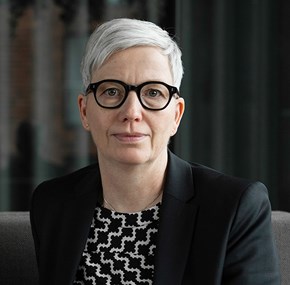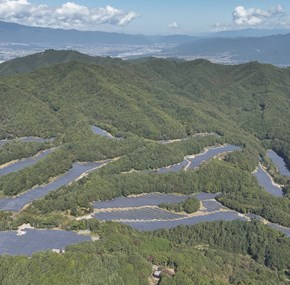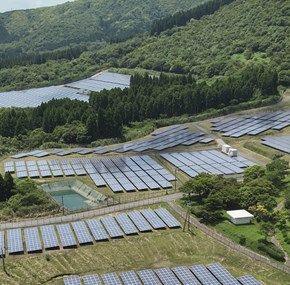Solar industry working to tackle the challenge of solar PV-module scrap
The service life of a solar PV-module is at least 30 years. But what is to happen to tens of thousands of solar PV-modules when they are ready for the scrap heap? This is a question that sits high on the agenda of the solar industry, which is working intensively to come up with sustainable solutions.
The number of new solar farms around the world has skyrocketed in recent years, and all evidence suggests that this trend will continue unabated. This means that the solar industry will inevitably have to deal with a huge number of solar PV-modules that are scheduled for scrapping by 2050.
In the United States, researchers at the National Renewable Energy Laboratory (NREL) have just completed the first global survey to identify the most promising solutions for reusing worn out solar modules. It comes as no great surprise to learn that their general conclusion is that a lot more research and development are required in the area.
Sustainable processing
Robin Hirschl, Technical Director of Obton Tech, agrees that this is an area that demands additional focus in the future. He is nevertheless confident that a sustainable, eco-friendly way to process waste from worn out solar PV-modules will be available in the near future.
“We’re still at a stage where the volume of solar PV-module waste is limited. But there can be no doubt that the accumulation of solar PV-module scrap will soon become an issue. Fortunately, the industry is well aware of the challenge, and the EU passed legislation for the area as far back as in 2012,” he says, before continuing:
“I work closely with solar PV-module manufacturers, and I know for a fact that they’re committed to making it possible to reuse all components in a solar module as efficiently and cost cautious as possible. It is also in their own interest to make the production process eco-friendly and sustainable. That’s why I’m not overly concerned that solar PV-modules will constitute an environmental challenge in the future.”
The goal is a circular industry
The researchers from NREL explain that the goal for the future should be to establish a circular industry for the reuse of solar modules – although they emphasise that this will demand both financial investment and hard work.
In their survey, they highlight a number of innovations which, in theory, already make it possible to recycle or break down between 95 and 100 percent of the materials in a worn out solar PV-module.
Today, solar PV-modules are principally made of silicon – an element that makes up almost 30 percent of the Earth’s surface and is therefore readily available in large quantities. However, they also contain valuable and environmentally hazardous substances such as lead, silver and copper, albeit in small amounts, and the ultimate aim should be to eliminate these substances entirely.
The researchers simultaneously indicate that there is scope to extend the service life of solar PV-modules, to make better use of the materials and to ensure that electricity production becomes even more efficient.
Obton is closely following developments
At Obton, the issue of processing solar PV-module scrap is not yet a pressing challenge, but Robin Hirschl explains that he and the other specialists at Obton Tech are keeping a close eye on the options that are regularly discussed in the industry.
“Solar energy is powering a large part of the green transition, and we at Obton have a role to play in this development. This means that we likewise have a responsibility to take good care of our natural assets and help to support a circular economy built up around recycling solar PV-modules,” he concludes.






